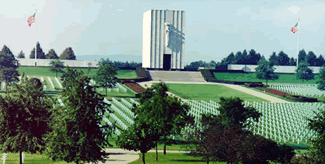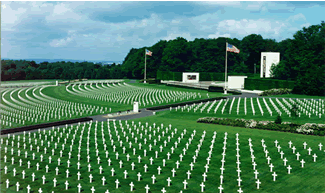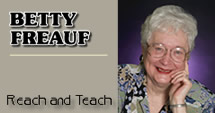WILL PRESIDENT MISS ANOTHER D-DAY MEMORIAL
By
Betty Freauf
June 4, 2014
NewsWithViews.com
Information floating around the Internet says that Barack Obama is the only president who has failed to visit the Monument on D-Day. “Every year the French have a 4-day celebration complete with American uniforms, tanks, jeeps and guns at the D-Day Memorial in Normandy in honor of the Americans who died there.” WWII started on 9/1/1939, lasted nearly six years and an estimate of both military and civilian deaths vary depending on which publication I read but the most commonly cited figure is about 55 to 60 million. Even the D-Day is a bit ambiguous and none of my calendars even mentions it.
So the question is asked, “Will our President be absent once again on June 6, 2014, the 70th anniversary of “D-Day”- the largest invasion ever attempted, where Americans stormed the beaches at Normandy to begin the final push to defeat Nazi Germany and marked the turning point in WWII in Europe. The Internet information noted that “President Barack Obama has been noticeably absent on June 6th 2010, 2011, 2012 and 2013 because he had other events scheduled.”
However,
an article in the 6/12/1995 NEW AMERICAN by Joseph Sobran is headlined:
World War II: Our Tragic Legacy and says, “When President  Clinton
went to Moscow to celebrate the 50th anniversary of the Allied victory
in World War II, only a few commentators saw the irony of the occasion.
The President was actually commemorating a triumph of the Red Army,
which had invaded Poland at the beginning of the war- and had conquered
it as the end.
Clinton
went to Moscow to celebrate the 50th anniversary of the Allied victory
in World War II, only a few commentators saw the irony of the occasion.
The President was actually commemorating a triumph of the Red Army,
which had invaded Poland at the beginning of the war- and had conquered
it as the end.
FACTS IGNORED
The article continues that liberal opinion has tried to ignore the chief facts for more than a half century. World War II proved a historic blessing for communism. The second war, incomparably more destructive than the first, was chiefly a victory for the Soviet Union, which finished the war as a mighty empire and a major world power but opened the door to Soviet domination of Eastern Europe. With the aid and consent of the U.S. and British governments (which assisted in the repatriation of countless Russians and other Slavs), tens of millions of European Christians fell under the control of a communist regime that had already murdered tens of millions even before the war began. Within three years, East Germany, Estonia, Latvia, Lithuania, Poland, Czechoslovakia, Hungary, Romania, and Bulgaria were all Soviet satellites. The Allies’ partnership with one of the original aggressors made hypocrisy of the Allied claim to be fighting for “democracy.” One result of the war was the destruction of democracy, and any semblance of freedom in Eastern Europe.
Even before the Soviet Union was forced to join them by the German invasion of 1941, the Allied governments were remarkably indulgent toward the Soviet Union all through the war. Under Roosevelt, Americans became acclimated to a style of government that had always been alien to them, and profoundly incompatible with the philosophy of their Founding Fathers. After that war on the home front, the power of the federal government over the country’s internal life was so greatly increased and concentrated that it is now a misnomer to call it “federal.” Just as Roosevelt’s New Deal stretched the term “general welfare” to the point of meaninglessness, so the war he sought stretched the “common defense of the United States” to comprehend a kind of interventionism never envisioned by the Founding Fathers said the NEW AMERICAN article. President George Washington had admonished us not to get entangled in foreign wars and like World War I, it enabled the federal government to centralize power and commandeer the national economy on a fascist-socialist model.
NO ONE IN GOVERNMENT HELD ACCOUNTABLE
You hear the bureaucrats mention the “rule of law,” however the ancient rule of law was replaced by bureaucratic dictates. Actually, the United States constitutional republic was replaced by United Nations administrative government where no one is ever held accountable. The current Veterans Administration fiasco and other recent scandals in the news is an example of a government that has gotten too big and is out of control and Americans have learned the hard way that the U.S. government sometimes sacrifices American G.I.s for worthless causes such as “Nation building” in Haiti and Serbia where there is no threat to national security but a lot of power and wealth is gained for the military-industrial-intelligence-financial complex.
WHEN I WAS A KID
But having said all the above, G. Gordon Liddy, A Korean war vet, says in his 2002 book, WHEN I WAS A KID, THIS WAS A FREE COUNTRY that he is a member of the last generation to remember what this country was like when it was free. “When I was a kid, my buddies and I could walk down the street carrying a rifle, a handgun, or a shot gun that our dad or uncle had bought for us at the local hardware store, or through the mail (the way Bat Masterson bought his Colt revolvers). In the fall, the air would be redolent with the delicious aroma of leaves burning in the gutter: the farmer might be filling in a swamp on his land to make it productive. A man with a home on a riverbank might be cutting down a tree on his property because it blocked his view.
PEOPLE SPEAK THEIR MINDS
“People were free to speak their minds, even if what they had to say was contemptible; people who didn’t like it were free to say so in no uncertain terms – anywhere, particularly in that bastion of ideas, the university. Property owners felt secure in the knowledge that their possessions could not be taken from them, and at the very least they would be afforded due process of law.” He concludes, “These freedoms and more are gone now…”
THE NORMANDY TOUR
And
then he shares his experience about his day trip to Normandy and how
impressed he was with the tour guide and the daylong lecture, especially
done, considering the events the guide was describing happened ten years
before he was born. On this particular day, the weather was beautiful
as the guide  pointed
out the flat, hedge-rowed, pastoral lands that extended back from cliffs
that overlooked the beaches and the sea. His bus threaded its way through
narrow village streets lined with buildings of thick and ancient stone.
pointed
out the flat, hedge-rowed, pastoral lands that extended back from cliffs
that overlooked the beaches and the sea. His bus threaded its way through
narrow village streets lined with buildings of thick and ancient stone.
However, this was not the way things looked on D-Day. The weather that day was foul; the wind was up; and to the fog of weather was added the fog of battle – the smoke gunfire and the massive, ear splitting eruptions of high-explosive bombs and artillery shells. The lowlands behind the beaches had been flooded to a depth of three feet – enough to drown a heavily laden landing paratrooper. “Rommel’s asparagus” – the three-meter-high stakes wired together at the tops and rigged with explosives – lay in wait like a deadly spider web for any glider trying to land troops. Vast minefields awaited any survivors.
The streets of the villages were century-old tank traps, setting the tankers up for the German soldiers’ deadly panzerfausten; these one-man rockets could easily destroy the American Sherman tanks, which were so vulnerable anyway that the British called them “Ronsons” in reference to that cigarette lighter’s ad of the day, “Lights first time, every time.” The Germans called them “”Tommy cookers” for the same reason.
On the cliffs, on the beaches, and out into the sea, the “Atlantic Wall” of Adolf Hitler’s Fortress Europe extended: immense reinforced concrete fun emplacements, more three-meter stakes, and steel-and-concrete tetrahedrons. The German guns, from artillery to machine guns, had already been registered – azimuth and ranges to their targets – and preset exactly to slaughter anything or anyone trying to come ashore through the storm-rolled surf.
Their first stop on the tour was Pointe du Hoc, where 226 American Rangers were to use rocket-propelled grappling lines to scale the nearly sheer cliff and silence the German artillery in the massive concrete bunkers at the summit. The land is as the battle left it, save for the healing grass that covers the huge craters, and forms a setting for the crazily heaved concrete rubble. In the fog and smoke the Rangers went to the wrong point and had to fight their way back through the heaving waves under constant heavy enemy fire to the correct one, only to find that their rocket-propelled lines, now soaked with water, were useless. Under the merciless barrage, the Rangers clawed their way up the cliff face with their hands and feet, and, incredibly, took the emplacement. The guns weren’t there. Wooden dummies were in their place. The men who remained fought their way inland to a forest where the guns were hidden and put phosphorus grenades down their barrels to destroy them, thus accomplishing their objective. The Rangers took 66 percent casualties.
At Omaha Beach people on the tour bus found a German 88mm artillery piece still trained along the length of the beach, looking down the throats of the Americans who made it alive out of the pounding surf. It was the best artillery piece of any army in the war – a killer of anything from aircraft, as a flugzeugabwehrkanone (from which we get the term “flak”), to tanks. It’s rusted now, with a monument built around and over it to the American National Guard units that landed there when it was clean, glistening with fresh oil, and sending lethal shells at them rapid-fire- at a velocity of three thousand feet per second.
The carnage began at sea when the troops had to descend rope cargo nets, then drop into the small boats waiting to deliver them to shore. Those who missed fell into the sea and, burdened with their packs, drowned. Others were delivered to sandbars way offshore. They drowned. Specially prepared tanks with “skirts” added to enable them to float were put in the heaving sea. Half promptly sank, drowning their crews. Paratroopers were dropped into the sea. They drowned. All cried out for help to the passing landing craft. None stopped to aid them. Orders.
Those who made it alive to the shore quickly lost their officers, then many noncoms. They ended up at the wrong place because of drifting boats, thus losing their objectives . Hellish fire tore into them from the cliffs above the beach. The wounded had to be given morphine shots while still in the water, then – lest they, too drown – be dragged into the fire, toward the enemy. Officers and noncoms dead or dying, their objectives lost, the air thick with steel, fog, and smoke, the Americans knew what they had to do – storm the cliffs and kill the enemy before he killed all of them. Incredibly, they did just that. The cost of that one day’s fighting was 200,000 dead on all sides.
The lecturer had told us that as terrible as the battle was for those who stormed Omaha Beach, there was one outfit that went through even worse – the airborne. General Eisenhower had been prepared to accept 75 percent casualties among the airborne troops who were called upon to drop behind the enemy lines on D-Day. His estimate was about right. Traveling with Liddy was one of the survivors named Frank. His outfit was the Eighty-second Airborne Division and he had jumped with them on 6 June 1944.
To those who fight a war, all battles are small-unit actions. The smallest unit in the infantry is the eight-man squad. All day, as the tour guide had lectured, we had all looked out the bus windows to the left, toward the beach and the sea. Not Frank. He kept looking toward the right, seemingly trying to spot where his squad had landed, other times looking down, not seeing the beauty of the Normandy of today that was bought by those brave men more than half a century ago; his mind was seeing them buy it, minute by minute, wound by wound, life by life. Frank’s daughter told me of all the men in the squad he jumped with on 6 June 1944, Frank Smith was the only one who made it out alive. Frank was one of more than 16 million men who served in the armed forces during World War II. Like Frank, the vast majority came of age during the Great Depression. Also like Frank, many of those who made it back from Europe and Asia went on to leave honorable lives, raising families and excelling in their chosen professions.
|
While their numbers are decreasing, and like Liddy who lived through World War II, we listened to President Roosevelt tell us it would take the efforts of every man, woman and child to win the war. He was right, and we knew it, which is why so many millions of men enlisted to fight, and why all of us at home pitched in. The nation was united as never before or since. There was no T.V. Unless a person lived in a city with a daily newspaper, others sat near their battery-powered radio broadcasts that brought the news but as we are learning years later – more propaganda than actual facts.
Shallow politicians may well congratulate themselves on the famous victory of World War II. But seen in proper perspective, Sobran says that war was a terrible tragedy for the American political tradition and for Christian civilization itself. Unless and until the West faces the full truth, the damage will be irreparable.
� 2014 Betty Freauf - All Rights Reserved












 Share
This Article
Share
This Article






